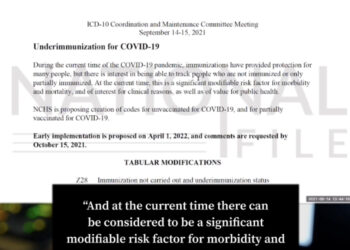The Director of the Center for Antiracist Research at Boston University has leveled the charge of “White colonizer” at Amy Coney Barrett, President Trumps nominee to the US Supreme Court, because she and her husband adopted two children from Haiti.
Ibram X. Kendi, an author who appears to have used his Black privilege to leverage an appointment as the director of the Center for Antiracist Research at Boston University, criticized Barrett openly on Twitter.
“Some White colonizers ‘adopted’ Black children. They ‘civilized’ these ‘savage’ children in the ‘superior’ ways of White people, while using them as props in their lifelong pictures of denial, while cutting the biological parents of these children out of the picture of humanity,” Kendi tweeted Saturday.
Some White colonizers "adopted" Black children. They "civilized" these "savage" children in the "superior" ways of White people, while using them as props in their lifelong pictures of denial, while cutting the biological parents of these children out of the picture of humanity. https://t.co/XBE9rRnoqq
— Ibram X. Kendi (@ibramxk) September 26, 2020
Barrett, 48, is seen as conservative in her political beliefs. She currently serves on the 7th Circuit US Court of Appeals. She is Roman Catholic with 7 children, including two adopted children from Haiti.
She previously clerked for the late Supreme Court Justice Antonin Scalia, who died in 2016, served as a law professor at the University of Notre Dame, and has declared her fidelity to the literal interpretation of the Constitution, or “originalism.”
Absent from any criticism from Kendi were the adoptive parents of Black activist Colin Kaepernick, whose White birth mother put him up for adoption after his African-American father abandoned her before Kaepernick was born.
In attempting to walk-back his direct criticism of Barrett, Kendi tried to spin his attack to one on the culture in general, tweeting, “And whether this is Barrett or not is not the point. It is a belief too many White people have: if they have or adopt a child of color, then they can’t be racist.”
The argument of “systemic racism” in American society is a contentious one and one almost exclusively based in emotion. Recent FBI crime statistics have proven that the narrative of “systemic racism” in law enforcement is a manufactured narrative with little evidence to prove the charge.





















